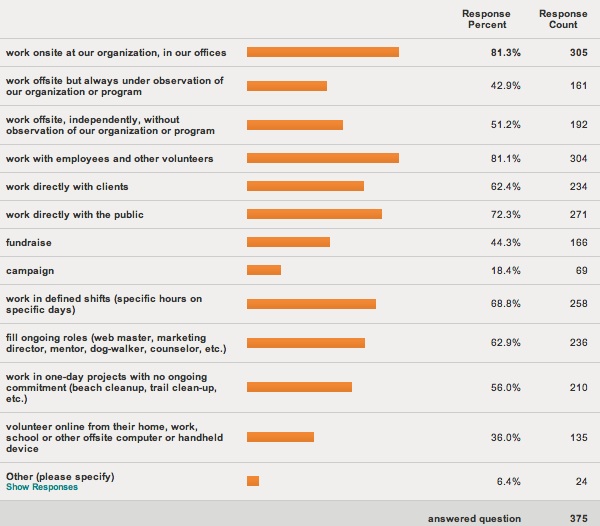 You probably won’t hear any well-known social media guru talking about it, you probably won’t hear about it in any social media workshop (except mine, of course), but do you know who is getting the MOST out of social media when it comes to community engagement?
You probably won’t hear any well-known social media guru talking about it, you probably won’t hear about it in any social media workshop (except mine, of course), but do you know who is getting the MOST out of social media when it comes to community engagement?
Wrestlers.
Check out 110 Trending Topics in 5 Hours: How WWE Wrestlemania Body-Slammed Social Media:
Behind strong pushes on Twitter and YouTube, WWE Wrestlemania XXVIII laid the smack down on social media last weekend, teaching a digital engagement lesson to the sports entertainment world.
Heck, Wrestlemania taught a digital engagement lesson to the nonprofit world, to ANY world, if those sectors will listen. Also see: How the WWE Is Making WrestleMania More Social Than Ever.
But will you click on those links? Or are you already lifting up your nose at the mere mention of the word wrestling?
Professional wrestling – or, as my people like to call it, rasslin’ – is unbelievably popular world wide. I’ve been stunned at how many wrestling shirts I’ve seen all over the world, including in Kabul, Afghanistan. In Kabul, there are (or, at least, in 2007, there were) gyms in the city that had the images of wrestlers from Wrestlemania in front of their businesses to draw people in (don’t sue, Wrestlemania, just don’t). I couldn’t understand why USAID wasn’t employing stars from Wrestlemania to create public service announcements for Afghans about whatever it is we’re trying to get Afghans to do (support women in microenterprises, support girls going to school, grow wheat instead of poppies, drive on the right side of the road, employ proper water sanitation practices, etc.). I’m totally serious, USAID!
But we cringe at the thought of… sniff… wrestlers being involved in anything noble or high-minded or community-focused like that.
I worked with People Magazine once upon a time to do a pilot online mentoring program with kids in Washington, D.C. – and the People folks wanted celebrities to be the online mentors. At a classroom we visited in the basement of a school (where it was easily over 100 degrees on that stifling hot day), there were probably five kids wearing Wrestlemania t-shirts. I talked to the kids while the rest of our visiting party stood across the room, as far away from the students as possible, and when I asked the students what kind of celebrities they admired, they didn’t name rap stars – they named wrestlers. I was thinking, hey great, we’re getting wrestlers for these kids as online mentors! Later that afternoon, in our followup planning meeting in an air-conditioned room of a then dominant Internet provider in Virginia, a room so cold I needed a sweater, People Magazine staff balked at the idea of wrestlers. They said they were thinking of celebrities such as Martha Stewart and Charleton Heston as possible mentors for these teens. I kid you not – that’s the two people they named in that meeting as examples of proper online mentors for inner-city teens.
It’s worth noting that the first virtual volunteering by a celebrity I have been able to find has been by… A RETIRED WRESTLER. Mick Foley is a an online volunteer with RAINN (Rape, Abuse & Incest National Network), the largest anti-sexual assault organization in the USA. He talked about his experience as an online volunteer on a November 2010 episode of The Daily Show with John Stewart. In a RAINN web video, Foley says, “I cannot think of a better way to spend a few hours a week than helping someone who needs RAINN’s services.” Learn more about volunteering for RAINN’s Online Hotline.
(Yes, I just burned a bridge with People Magazine. So much for my bid to be one of their most beautiful people. Ah, well.)
Let’s be clear: I actually don’t watch wrestling. Well, now, anyway – when I was 8, I loved watching Bill “Superstar” Dundee on TV. I also loved roller derby in those days. But, indeed, I have moved on. I could not name a modern-day wrestler. I’m not as hip as you might think.
But I haven’t become too sophisticated to say, way to go, Wrestlemania. I’ll happily learn from Wrestlemania and wrestlers when it comes to virtual volunteering, online mentoring, and online community engagement, I’d love to invite your participation in any community engagement activity I’m a part of, and I’ll even use examples of your online activities in my workshops – even while other social media experts and nonprofit management trainers rolls their eyes and cringe.
But I still might call it rasslin’.
Consulting services by Jayne Cravens.




